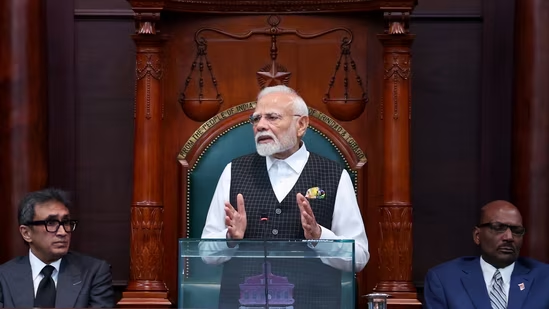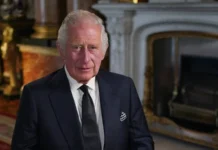India’s foreign policy has witnessed a fundamental transformation over the past decade. Under Prime Minister Narendra Modi’s leadership, diplomacy has been democratised: moving from a closed, elite-driven system to one that is participatory, inclusive, and strategic. This evolution is not merely procedural but civilisational, drawing from India’s ethos and projecting its aspirations. We describe this shift through the lens of Modi’s 5Ps of Diplomacy: Para Diplomacy, People Diplomacy, Pravasi Diplomacy, Planet Diplomacy, and Peace Diplomacy.
Para Diplomacy represents the decentralisation of foreign policy. In this model, Indian states and cities are no longer passive observers but active participants in global engagement. State governments now host international investment summits, sign MoUs with foreign partners, and shape narratives about India’s competitiveness. Gujarat’s Vibrant Gujarat Summit has become a global business platform. Tamil Nadu and Karnataka have partnered with international universities and firms, while Odisha’s Make in Odisha event attracted global giants like ArcelorMittal.
Uttar Pradesh’s Global Investors Summit 2023 brought together representatives from over 40 countries. This shift reflects a new federal dynamic, where foreign policy is aligned with local economic development and innovation. People Diplomacy is about diplomacy with a human face. In this approach, citizens themselves are stakeholders and participants in shaping India’s global image. Under India’s G20 Presidency in 2023, the government hosted over 200 meetings in 60 cities—from Hazaribagh to Hampi—engaging local communities, students, civil society, and entrepreneurs. The Jan Bhagidari model was a clear departure from capital-centric diplomacy.
Similarly, the International Day of Yoga, now celebrated in over 190 countries, is a powerful symbol of India’s soft power rooted in tradition. From startup founders to climate champions, citizens now serve as informal ambassadors, telling India’s story in global forums. Pravasi Diplomacy reimagines the Indian diaspora not just as a cultural bridge, but as a strategic asset. With over 35 million overseas Indians, India’s global community is one of its greatest strengths. Prime Minister Modi’s diaspora engagements, from Madison Square Garden in New York to Qudos Arena in Sydney, are testimony to the growing bond between India and its global citizens.
The Vande Bharat Mission, which safely repatriated over six million Indians during the Covid-19 pandemic, earned trust and admiration worldwide. Reforms to the Overseas Citizenship of India scheme and labour agreements with Gulf nations further institutionalised India’s diaspora engagement. Today, our diaspora contributes not just remittances but global influence, strategic leverage, and technological know-how. Planet Diplomacy is India’s articulation of environmental leadership in a multipolar world. India has emerged as a credible voice on climate justice, sustainability, and innovation.
The International Solar Alliance (ISA), co-launched with France, includes over 110 countries and promotes equitable access to solar energy. The Coalition for Disaster Resilient Infrastructure (CDRI) brings together governments and institutions to build climate-resilient infrastructure. The LiFE Mission (Lifestyle for Environment), launched by PM Modi at COP26, encourages sustainable living as a mass movement. India’s progress in green hydrogen, e-mobility, and digital public infrastructure (DPI) showcases its readiness to lead not just through commitments, but through scalable solutions. Peace Diplomacy reflects India’s long-standing civilisational role as a force for global harmony. This is not passive neutrality, but active peace-building rooted in Dharma. Under Vaccine Maitri, India supplied over 250 million Covid-19 vaccine doses to more than 100 countries, many in the Global South, reinforcing trust and solidarity.
India played a crucial role during Sri Lanka’s financial crisis by extending over $4 billion in support, and was among the first responders after the earthquakes in Turkey and Syria. India’s presidency of the G20 was marked by the historic inclusion of the African Union, an effort that amplified the voices of underrepresented regions. Through initiatives like medical diplomacy, yoga tourism, and humanitarian assistance, India is crafting a diplomacy that combines purpose with compassion. Together, these five pillars represent a diplomatic doctrine of inclusion, intention, and innovation.
They challenge the older assumption that diplomacy is confined to embassies, foreign ministries, or elite conclaves. Instead, diplomacy is now owned by citizens, enabled by technology, decentralised through states, and powered by India’s civilisational values. For students, civil servants, scholars, and policymakers, the 5Ps offer a new framework to understand India’s role in the world—as a civilisational power that seeks not dominance, but dignity; not hegemony, but harmony. This is diplomacy reimagined for a rising India, grounded in Sanskriti, driven by Sankalp, and guided by Samman. * Sujeet Kumar is a Member of Parliament (Rajya Sabha), India. K.K. Dash is the Director of Public Policy and International Engagement at the MP Office of Sujeet Kumar. Views expressed are personal.







